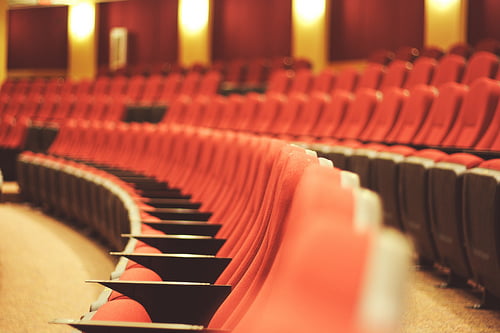The curtain rises on a teen in a wheelchair, an escort beside him. Evyatar Banai’s song “Yesh Li sikui” (“I have a Chance” ) plays in the background. The teen says: “I’m standing here today, but not everyone is standing with me; there are some who are different.”
Very soon the audience watching the performance of “Na Lashevet” (“Please be Seated” ) understands that the intention is not to arouse pity, but also not to make them feel comfortable.
An actor on a wheelchair suddenly bursts onto the stage and shouts: “Hello, hello! What is all this nonsense? Clear the stage! You,” he indicates the musician, “stop playing your whining songs. Lights, put on more lights! If any of you expected a performance with violins, moments of poetry and feeling – sorry, you’ll be disappointed. There won’t be any dribbling children with a melancholy look. So swallow your saliva. Those of you who can, relax in your chairs, whether they’re mechanized or not. We’re starting!”
“Please be Seated” is a show put on by Ometz, a troupe run by Beit Hagalgalim (House of Wheels ), which organizes activities for physically handicapped children and adults. It will be performed twice next week at Jerusalem’s Khan Theater, on Tuesday and Wednesday evening.
The entire show is performed by children and teens with disabilities stemming from cerebral palsy, muscular dystrophy and other such causes.
It is meant to show society that they, too, are capable of speaking, thinking and expressing themselves. And no, they don’t need help from the person accompanying them when they simply want to order something from the menu in a restaurant.
“We put together a number of skits we had written that laugh at society, which treats us tactlessly and contemptuously,” explained Gil Malha, 18, who has cerebral palsy and uses a wheelchair. “The performance includes situations from our lives or situations in which we have seen how people react. After years of experience, it’s not difficult.”
The show is the brainchild of Ometz, which formed at Beit Hagalgalim seven years ago, along with some counselors who founded Tangish, a nonprofit group that works to make places and people more physically and culturally accessible.
…
To read the whole story click here
Via http://www.haaretz.com/
Photo by DeaPeaJay
Related posts

Rehabilitation Nation: Israeli Innovation On Road To Healing

Israeli High-Tech Sector 'Still Good' Despite Year Of War





Facebook comments